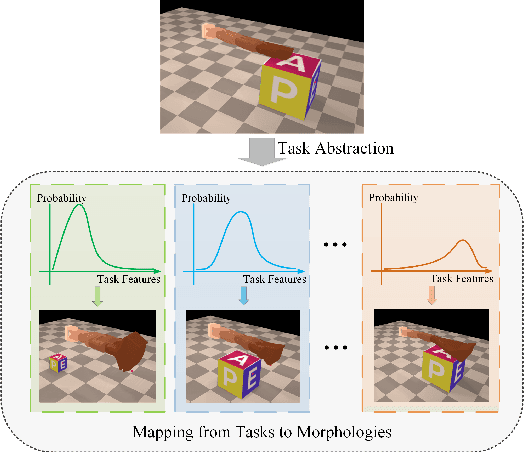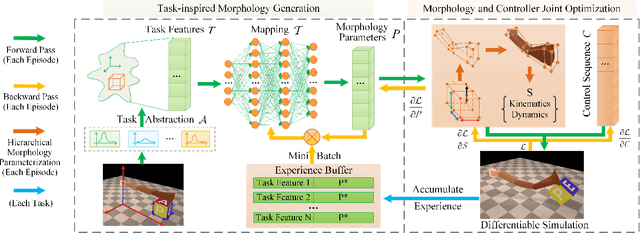Task2Morph: Differentiable Task-inspired Framework for Contact-Aware Robot Design
Paper and Code
Mar 28, 2024



Optimizing the morphologies and the controllers that adapt to various tasks is a critical issue in the field of robot design, aka. embodied intelligence. Previous works typically model it as a joint optimization problem and use search-based methods to find the optimal solution in the morphology space. However, they ignore the implicit knowledge of task-to-morphology mapping which can directly inspire robot design. For example, flipping heavier boxes tends to require more muscular robot arms. This paper proposes a novel and general differentiable task-inspired framework for contact-aware robot design called Task2Morph. We abstract task features highly related to task performance and use them to build a task-to-morphology mapping. Further, we embed the mapping into a differentiable robot design process, where the gradient information is leveraged for both the mapping learning and the whole optimization. The experiments are conducted on three scenarios, and the results validate that Task2Morph outperforms DiffHand, which lacks a task-inspired morphology module, in terms of efficiency and effectiveness.
 Add to Chrome
Add to Chrome Add to Firefox
Add to Firefox Add to Edge
Add to Edge